’Tis the season for retargeting ads. Major shopping periods spark a surge in campaigns triggered by items consumers browse, place in their carts, or (annoyingly) have already purchased.
Samuel Scott gave an interesting talk in October about the net effect of all of this retargeting. He said: “If anyone here uses retargeting, then it’s your fault that people are blocking online ads.”
He referenced analysis from Doc Searls in the Harvard Business Review that “the rise of adblocking has specifically correlated with the appearance of retargeted advertising … the web existed for two decades without people trying to find a way to block online advertising. So, why is it happening today? Searls found the answer – direct marketing run amok and taken to an extreme … Retargeting was the straw the broke the web’s back.”
Or as Doc Searls himself put it, “Madison Avenue fell asleep, direct response marketing ate its brain, and it woke up as an alien replica of itself.”
Samuel also featured a University of Pennsylvania study that found 66% of Americans do not want direct marketing that is tailored to their interests. When told how marketers collect their data to tailor the ads, the percentage increases to 86%.
Between the rise of adblocking, new regulations like GDPR, and industry moves like the Safari browser’s new “Intelligent Tracking Prevention”, retargeting tactics are in flux. It will be interesting to see how this shapes the future of advertising.
Here are a few cartoons I’ve drawn on this topic over the years:
“Ad Retargeting“ March 2014
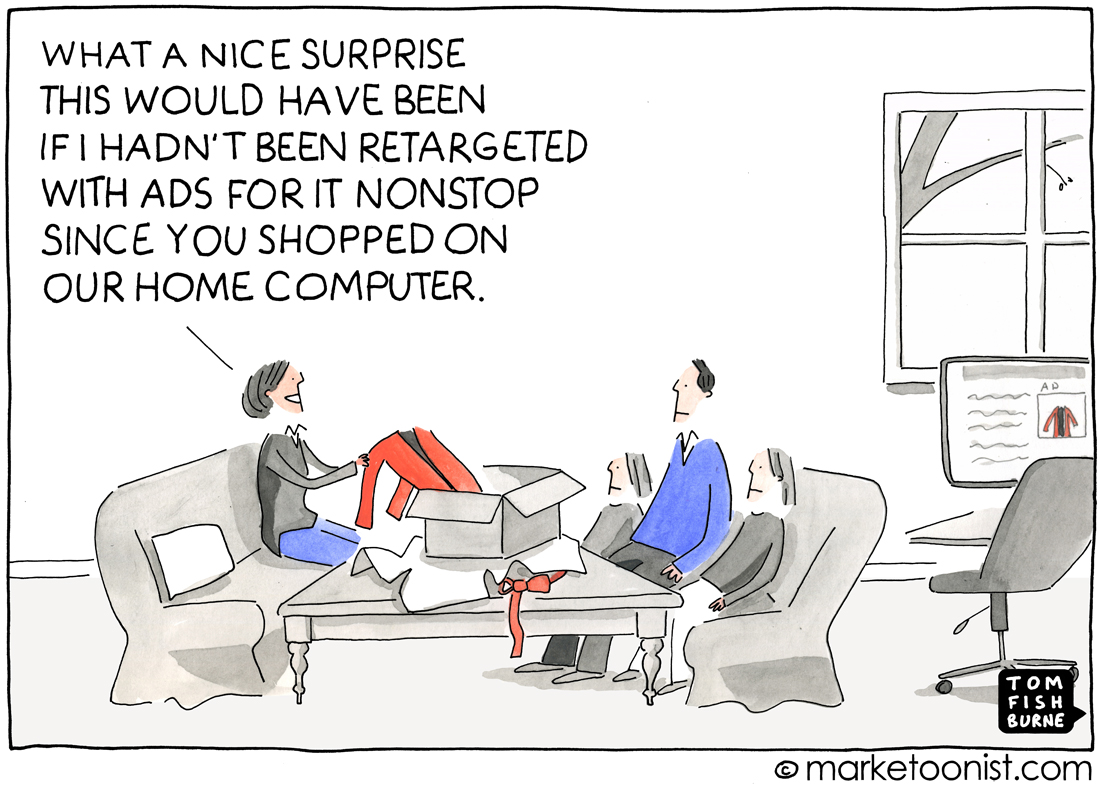
“Targeted Holiday Advertising“ December 2014
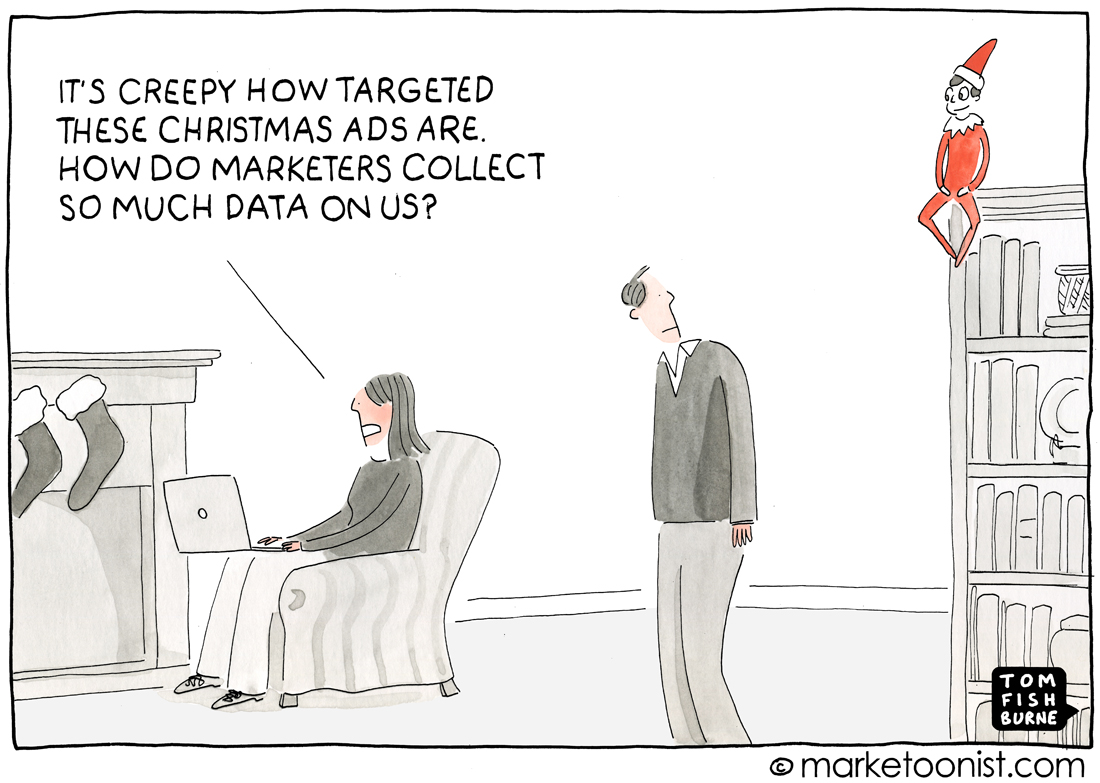
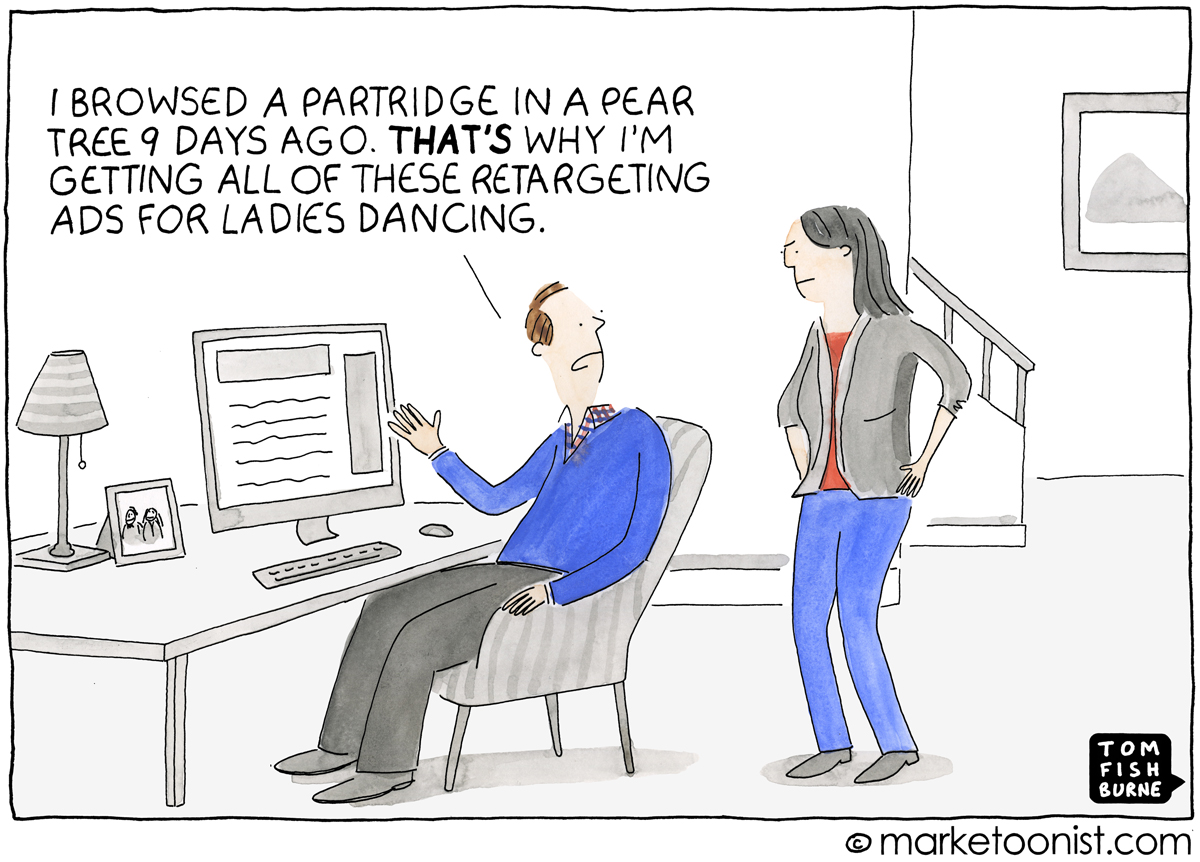
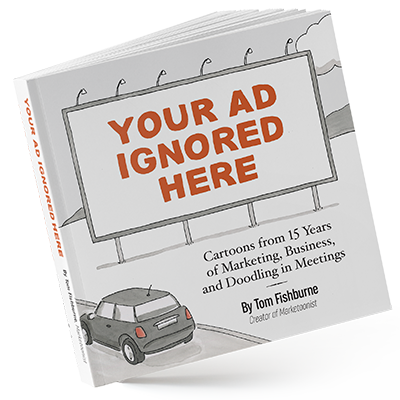

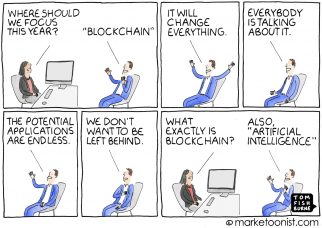
Ashley says
As both a marketer that uses retargeting ads AND a consumer that blocks ads on many websites, I can say first hand that it’s not the retargeting ads that initially caused me to block ads. The reason I started blocking ads is more due to the lack of quality control (i.e. spam ads or nuisance ads) and/or how the websites implement them (ads popping up that I have to click out of to see the content I wanted, or just generally ads that don’t integrate well with the user experience).
I could care less that Amazon is following me around Facebook for that dog toy I read reviews of last week. What I care about is being interrupted while I’m trying to read an article or watch a video.
Bryce says
Love it and agree. That 2014 would be more accurate now with an Amazon Echo in the background.
Doc Searls says
Thanks, Tom.
While I’m glad that people are getting hip to the correlation between the rise of ad blocking and retargeting, credit for first noticing it goes not to me but to Don Marti (@dmarti) who wrote about it back in 2015, here: https://digitalcontentnext.org/blog/2015/07/06/ad-blocking-why-now/ . Also, for the curious, a compilation of my posts on people vs. adtech is here: http://blogs.harvard.edu/doc/the-adblock-war/ .